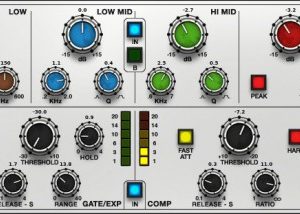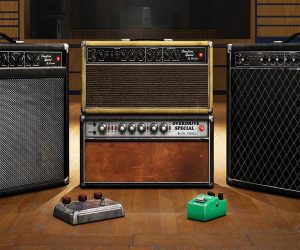
The Quick Mix: Tim Whitten
With Tim Whitten.
Interview: Neil Gray
Who have you been touring with recently?
Low Lux, Lanie Lane, Philadelphia Grand Jury, Paul Dempsey, Deep Sea Arcade, and The Church.
Who are some other bands you’ve worked with?
The Necks, Brian Jonestown Massacre, Canyons, and Boy And Bear.
How long have you been doing live sound?
For 34 years, even since a friend insisted I do sound for his band.
What is your favourite console and why?
Ideally an analogue console with lots of outboard compression but I love the control a digital console gives you. For small venues with less than ideal PAs, I would prefer a digital console for the control and extra processing options.
Favourite microphone or any other piece of kit?
My favourite mic is the one that suits the situation the best; the instrument and situation will determine what mic works better than another. But if I had to do a gig with one type of mic on all instruments and voice I could survive with a Shure SM58 or SM57. I can’t really live without a Smart C2 compressor on the mix bus. For me it’s the most helpful bit of outboard apart from a vocal compressor, a delay and a reverb.
Most memorable gig or career highlight?
Mixing Morrissey’s first show after the Smiths broke up was very memorable for the chaos. Mixing Alice Cooper at Reading festival in the ’80s for such a huge audience was a very surreal experience, because I was mixing songs I’d played on my bedroom record player as a kid. The Underground Lovers at the Annandale during the ’90s was always a sonic event. All the Necks shows. It was amazing how three people can improvise and never repeat the same piece of music, yet the music be so transcendent of time and sonic knowns. Joanna Newsom for the sheer beauty of her music.
What are three mix techniques you regularly employ?
Understanding what it is about the artist’s music that might make people want to listen. Limiting spill into mics if you are working with a less than ideal stage sound. I try to concentrate on the mix balance first, and then the tone. It’s important for the music to make sense, that you hear all the instruments balanced relative to each other. Also, walking away from the mix position in the early part of the set if I can bear to take my hands off the faders — I keep telling myself I should do this more.
Game changing gear from the last 15 years?
Line arrays and the processing power to fine tune a setup, IEMs, digital consoles, and laptop control options.
How have your working methods changed over the past 15 years?
System setup can now be more scientific but I still need to trust my ears after all the screwdriver work is done.
Any tips/words of wisdom for someone starting out?
It’s good to ask questions and read lots. I used to sneak into sound checks and try to pick up a few tips, or if it was a touring PA, I’d offer to help load in and help rig the system. Learn to listen to sound and relate it to music. Try to be friendly and understanding and find a band to hang out with and help them carry gear. They’ll need someone to mix them one day, and a lot of the time it’s about being in the right place at the right time. It’s pretty much a people person industry so you need to be able to get along with everyone.
















RESPONSES